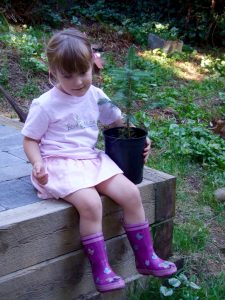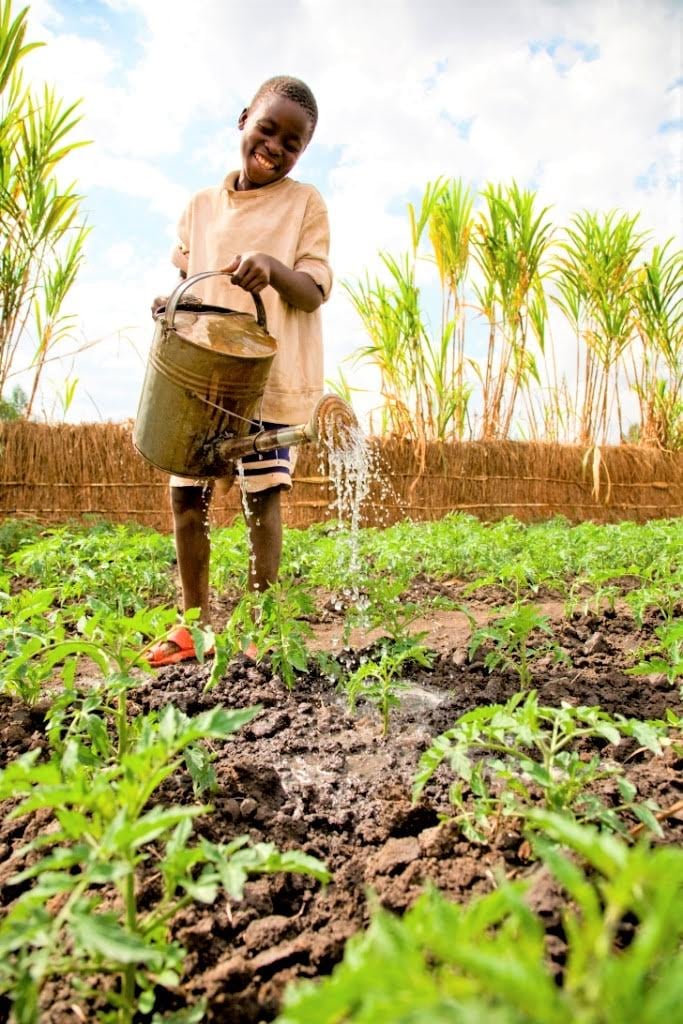OUTDOOR PARENT FEB 5, 2021 • Author: Andrea Koehle Jones
The pandemic is threatening the survival of outdoor learning programs just when kids and teens need them most

As the covid-19 pandemic continues to unfold, many environmental education organizations around the world are facing a growing risk of collapse. An alarming 63% of US organizations that provide outdoor environmental and science education to K-12 students are uncertain about their ability to ever reopen their doors. That’s according to a study released this month by UCLA Berkley.
The loss of outdoor education is a devastating situation with potentially catastrophic impact, says Rena Dorph, director of the Lawrence Hall at UCLA Berkeley. She is one of the authors of the study.
Childhood anxiety escalating during the pandemic
This news couldn’t come at a worse time as childhood anxiety levels are climbing due to Covid-19. According to a study in Canadian Medical Association Journal, more screen time plus less social interaction and physical activity can result in higher rates of depression and anxiety in children.
The Upside Down
Their world’s have been turned upside-down as schools, camps and other outdoor programs have shut down or at a reduced capacity.
“Since the start of the pandemic, kids and teens around the world have fewer opportunities to connect with nature,” said Andrea Koehle Jones, executive director of The ChariTree Foundation. “This is a real loss because research shows that contact with nature makes kids feel less stressed.”
She says one of the best things we can do to help kids and teens deal with pandemic stress is get them out in nature. Exposure to the outdoors can reduce children’s stress levels by as much as 28 percent according to The National Environmental Education Foundation. We need to do everything we can to get kids safely outside and support environmental education programs so they are ready to jump back in as communities are deemed covid safe.

Green Schools in Malawi
This is why the ChariTree Foundation decided to make one its largest donations ever to a green schools project in Malawi.
“The ChariTree Foundation has partnered with CPAR to enable youth in Malawi to get hands-on training in permaculture and environmental sustainability,” said Jean-Luc Halpin, Program Coordinator, Canadian Physicians for Aid and Relief. He explains that children will learn how to build gardens, plant trees and seedlings, and benefit from clean water from the newly constructed rainwater harvesting tanks. “As the pandemic persists across the globe, our commitment to environmental education programs perseveres. The Green Schools team in Malawi is excited to get this project going once schools reopen later this summer.”
Koehle Jones says it took many years for the charity to save enough to make such a significant donation. She says the CPAR’s green school program fits The ChariTree Foundation’s goals and she should know. Koehle Jones has been involved in youth environmental education projects in remote areas of South Africa, Zambia and all across Canada.
It’s about getting kids outdoors
These days it’s more challenging than ever to get kids outdoors safely and socially distanced but that doesn’t mean we shouldn’t try, says Koehle Jones. Despite dwindling donations due to the pandemic, environmental organizations are doing all they can to help. Support them firstly by volunteering to help get kids outdoors, secondly by donating to the many environmental education charities around the world and thirdly by re-tweeting and promoting articles raising awareness about children and nature. This way more children will have access to critical environmental education programs. This ways kids get more opportunities to get outdoors to learn about the environment. Millions of children are already facing the impacts of climate change. “If children are going to make a lifelong commitment to protect the environment for themselves and future generations, they first need time to explore the wonders of nature,” says Koehle Jones.
“Many children have been hunkered down in front of screens, learning about the rest of the world from the confines of four walls,” said Jacob Rodenburg, co-author of The Big Book of Nature Activities (2016). “If we want kids to know, care and protect the environment, they need to be in the environment, encountering and experiencing the very life systems that nurture us all. With every breath of air we take in near a tree, we boost our immune systems, we improve our mood and we increase our energy levels. So go outside today and absorb some Vitamin “N” (nature). You’ll feel better!”
PRESS RELEASE: Media requests? Contact andrea@charitree-foundation.org #greennews
Andrea Koehle Jones is the founder and executive director of The ChariTree Foundation. She’s a children’s book author, formerly a CBCNews journalist, a producer for cbc4kids and a Greenpeace communications strategist during the campaign to Save The Great Bear Rainforest.
The ChariTree Foundation creates and supports national and international children’s environmental education programs.
